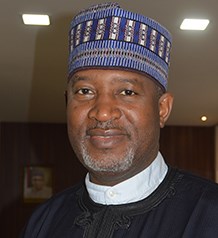By Favour Nnabugwu
Nigerian Agricultural Insurance Corporation (NAIC) has said the farmers have ño need the fear about insuring the farm produce as the corporation give 50 percent subsidy to farmers
Managing Director of NAIC, Mrs Folashade Joseph, had explained to that the NAIC Act Cap. N89, Laws of the Federation of Nigeria empowers NAIC to underwrite agricultural risks and subsidise the premium chargeable on some categories of crop and livestock items by as much as 50 per cent.
She, however, said when agricultural projects are financed through credit facilities from whatever sources, they must be insured with NAIC.
On what farmers could insure against at NAIC and how to go about it, the NAIC boss said the corporation insures agriculture across the value chains, covering risks associated with primary production, transportation, processing, and storage (silos), among others.
She explained that “the perils covered by crop policy are fire, lightning, windstorm, flood, drought, pests/diseases, and invasion of the farm by wild animals.
“Losses caused by negligence or willful damage are not covered. Similarly, political risks and losses resulting from social risks like riots, mutiny, revolution are not covered under the scheme.”
In addition, Joseph said the corporation’s website also contains salient information that could guide the farmers on how to access NAIC policies.
She said: “However, all a farmer needs to do is call or go to the branch office nearest to him/her and give the detailed description of his/her farm, and NAIC officials will be there in no time. The farmer will need to complete the proposal form, after which NAIC will carry out a pre-inspection visit to the farm to assess it.
Once the farm is assessed, the premium payable would be communicated to the farmer. After the premium has been paid, the policy would be issued. It is as simple as that.”
Subsidy of 50 per cent applies to crops such as rice, maize, yam, cassava, sorghum, guinea corn, beans, soya beans, and indeed all food crops. Crops such as cashew and cocoa are on a commercial basis, and therefore attract no subsidy.
Subsidised livestock includes poultry, cattle, goats and sheep, rabbits, and fishery, among others, but dogs, camels, donkeys, and horses are categorised as commercial with no subsidy, she disclosed.
For a farmer to get compensated for farm losses, NAIC said it takes a maximum of 14 days to pay genuine claims if complete documents are made available to the corporation by the farmers or their agents. Some claims take less.





